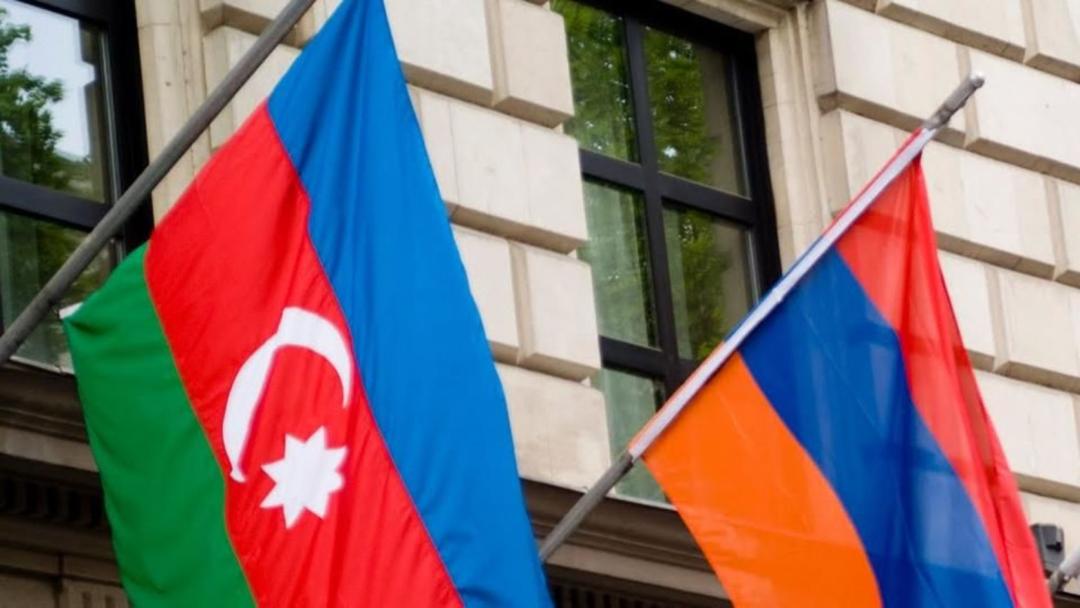
Armenia-Azerbaijan border crisis: both countries in favour of Russia’s mediation; OSCE Minsk Group releases statement

On 31 May, Azerbaijan’s Defence Minister Zakir Hasanov instructed the command and military units stationed on the territories of Nagorno-Karabakh to take decisive and urgent steps to suppress enemy provocations.
Hasanov made the remarks at an official meeting attended by the deputy defence ministers, commanders of types of troops, chiefs of the ministry's main departments, departments, and services. Commanders of the Army Corps and formations stationed on the liberated territories, as well as other officers.
In the meantime, Hasanov’s Armenian counterpart Vagharshak Harutyunyan held another phone conversation with Russia’s Defence Minister Sergey Shoygu to discuss the situation on the Armenian-Azerbaijani border. They also spoke about how to implement the agreements that have been reached during their meeting in Moscow last week (Caucasus Watch reported).
Two days earlier, Azerbaijan’s Prime Minister Ali Asadov spoke in favour of Russia’s proposal to establish a trilateral commission on delimitation and demarcation of the state border between the two countries. He recalled that after gaining independence, Azerbaijan carried out delimitation and demarcation with neighbouring countries - Russia, Iran, and Georgia - in accordance with international legal norms, but that was not possible with Armenia due to the Nagorno-Karabakh conflict. Asadov noted that now, as the hostilities are over, Azerbaijan has begun to create its border infrastructure and is ready to resolve the issue of drawing the border with Armenia in a constructive manner. The Prime Minister stressed that in this regard, Baku supported Moscow's proposal, adding that the definition of borderlines is a technical process that must be based on an international legal basis.
Armenia’s acting Vice Prime Minister Mher Grigoryan also spoke in favour of the proposal. “On May 19 the Armenian side presented its position to the Russian colleagues in a written form. Nevertheless, the issue on clarification of the border posts on Armenian-Azerbaijani border may be discussed only after Azerbaijani military sub-divisions leave the territory of the Republic of Armenia," he said, also emphasising the importance of the return of captured Armenian servicemen.
On 28 May, the Co-Chairs of the OSCE Minsk Group (Igor Popov of the Russian Federation, Stephane Visconti of France, and Andrew Schofer of the United States of America) released a statement regarding the border standoff. “The Co-Chairs take note of the reported detention of six Armenian soldiers on May 27 and call for the release of all prisoners of war and other detainees on an all for all basis. The Co-Chairs underscore the obligation to treat detainees in accordance with international humanitarian law. The Co-Chairs strongly urge the sides to lift all restrictions on humanitarian access to Nagorno-Karabakh immediately, and call on the sides to implement in full the commitments they undertook under the November 9 ceasefire declaration. The Co-Chairs also note with concern several recent reports of incidents on the non-demarcated Armenia-Azerbaijan border. The use or threat of force to resolve border disputes is not acceptable. We call on both sides to take immediate steps, including the relocation of troops, to de-escalate the situation and to begin negotiations to delimitate and demarcate the border peacefully. The Co-Chairs stand ready to assist in facilitating this process,” the statement emphasised.
Azerbaijan’s Ministry of Foreign Affairs responded to the statement by clarifying the above mentioned calls. “Azerbaijan has mobilised all of its efforts for restoration of the liberated territories and ensuring peaceful co-existence of people in these areas and implements relevant measures. We are reminded regarding six Armenian servicemen, cited in the statement of co-chairs, that the Armenian servicemen were detained while committing a provocation aimed at the mining of roads. Armenia’s refusal [to submit] information on the place[ment] of mines, in addition [to attempting to plant] new mines in the area [does] not fit into any frame while mines, planted by Armenia, cause danger for the lives of people in the liberated Azerbaijani territories daily. Thus, Co-Chairs should, at least, pay attention to the reason for the detention of these persons, call on provocateurs to avoid such kind of activity before suggesting the exchange of the detained persons on the basis of the “all for all” principle,” the statement read.
“We declared many times that we are in favour of resolution of the issue of border tension via negotiations, at the same time we support challenges of the international community on demarcation and delimitation of borders between two countries. As you know, Azerbaijan also supported the suggestion of establishment of a relevant trilateral commission on delimitation and demarcation of the border between Azerbaijan and Armenia, which was put forward regarding the issue a while ago. The Co-Chairs, in their turn, can contribute to peace and development in the region by supporting the implementation of trilateral statements,” the MFA underscored.
See Also


Yerevan Balances Strategic Ties with Both US and Russia, Says Foreign Minister

FM Mirzoyan: Peace Deal with Azerbaijan Is Within Reach

Pashinyan and Erdogan Hold Call, Reaffirm Commitment to Ongoing Dialogue

Ilham Aliyev and Masoud Pezeshkian Discuss Development of Bilateral Relations

